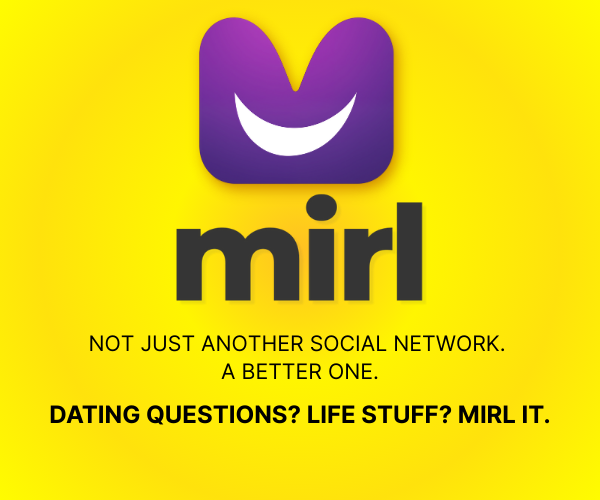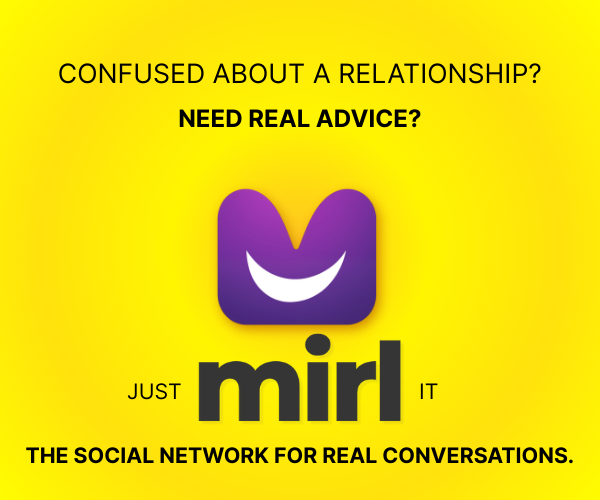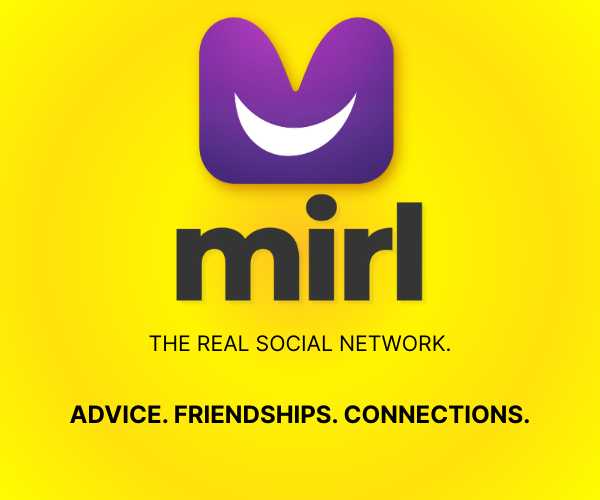What is Polyamory? How It Works & 30 Must-Knows To See If It’s For You

What is polyamory? Once you learn more, you might raise your eyebrows, but it’s far more common these days than you might realize. Love is love!
Once upon a time, relationships were always expected to be conventional. By that, we mean between a man and a woman. However, these days we know that love isn’t as straightforward. And thank heavens for that! Society has progressed enough to accept same-sex relationships, and relationships between men, women, transsexuals, and transgender individuals. And why not? Love is love, after all. If you’re wondering what is polyamory, you’ve come to the right place to learn more!
For now, a relationship between two people is considered normal. No matter what your sexual orientation is, adding another person to the mix often wreaks emotional, and sometimes physical, havoc on a relationship.
But what about those who choose to have more than one partner? And it’s not purely limited to sexual relations.
Some people really do want to have a committed relationship with more than one person, and the surprising thing is, the partners they’ve chosen totally agree!
[Read: 21 must-know ways to ask someone for a threesome & join you in bed]
What is Polyamory?
Polyamory is defined as a consensual, romantic, and intimate relationship with multiple partners. The concept, rich in history, offers a prism through which we can view the fluidity of human relationships over time. [Read: Torn between two lovers: Criteria to pick one who’s right for you]
In contemporary settings, polyamory aligns with the psychological understanding that human attachment styles can be diverse. According to 📚 attachment theory, individuals with a secure attachment style may find polyamory a fitting expression of their ability to form multiple secure and trusting bonds.
Polyamorous relationships also operate on the principle of 📚 consensual non-monogamy, which challenges traditional views of possessiveness in relationships.
📚 Social exchange theory can be applied here, where the relationships are viewed as transactions aiming to maximize rewards and minimize costs, suggesting that for some, multiple emotional investments yield greater personal satisfaction.
This relational configuration demands high emotional intelligence and communication skills. Psychological research emphasizes the importance of these competencies in successfully negotiating the complexities of multiple partnerships, where every individual’s needs and boundaries must be respected.
The misperception of polyamory as akin to cheating neglects to acknowledge the critical role of consent and open communication, both of which are foundational to polyamorous relationships.
Cheating undermines trust and breaches the agreed-upon terms of a relationship, while polyamory is predicated on honesty and transparency. [Read: 30 infidelity signs of a cheating partner & must-knows to tell if they’re lying]
What is the Difference Between Polyamory and Polygamy?
You might have heard of another term – polygamy. This is the practice of being married to more than one person.
Yes, we know what you’re thinking, that can’t be legal. But, in some places it is. Of course, in other places, it isn’t, so you need to be cautious if this is something you’re going to do.
There’s a difference between polyamory and polygamy. When it comes to polygamy, romance is not mandatory, but marrying more than one person is encouraged.
Polyamory is about love. Still, polygamy can be borne out of polyamory. There’s just a bit more paperwork involved if you’re in love with more than one person! [Read: Non-monogamy – How to know if you and your partner are ready for it]
How Do People Approach Polyamory?
For cultures that practice polygamy, there are different social etiquettes that need to be followed in order to marry more than one person. As we’ve already mentioned, you have to consider state and national laws about marriage as well. You don’t want to accidentally end up committing bigamy.
For the more progressive individuals who don’t adhere to such customs, there’s still a huge discussion about how to approach the idea of having more than one partner. [Read: Poly relationship – How to get past the jealousy of sharing love]
Most people don’t want to share their significant others, but many are now considering it the better option, as it gives you more freedom to be with the people you love, without having to choose between or among them.
The catch, however, is that you have to do a lot of explaining to whomever you propose the idea. That’s pretty hard, considering almost no one sees polyamory as an option.
Remember, polyamory isn’t the same as hooking up or having several friends-with-benefits on call. In order for someone to be considered polyamorous, there has to be a serious, committed relationship in the works. Basically, you have to dive into it with the purpose of falling in love. [Read: Triad relationship – Benefits and complications of a three-way love]
Are You Ready to Be Polyamorous?
That depends on how you see yourself in a relationship. Are you the type who wants to be with only one person for the rest of your life? Or can you handle cultivating an intimate relationship with more than one person?
Deciding to enter a polyamorous relationship is a significant decision that requires careful self-assessment. Here is an expanded checklist to consider:
1. Are you at ease with the idea of your partner being with others?
In polyamory, this is a foundational aspect as partners are not exclusive to each other. Being comfortable with non-exclusivity means recognizing and accepting that your partner can have intimate and romantic connections with others, which can be a significant departure from monogamous relationship expectations.
This readiness is crucial in polyamorous relationships as it lays the groundwork for trust and open communication. [Read: Relationship without trust: Can or should it last?]
2. Can you manage feelings of jealousy in a healthy way?
Jealousy can be a natural reaction in relationships, but in polyamorous relationships, it requires proactive management. It’s essential to have strategies to address these feelings, like open discussions and self-reflection.
Polyamory challenges individuals to confront jealousy directly, not only to manage their relationships but also to foster personal growth and strengthen emotional resilience.
3. Are you confident in your ability to communicate openly and honestly?
Communication is the cornerstone of successful polyamorous relationships. This entails articulating your desires, boundaries, and concerns in a way that is clear and comprehensible to all parties involved.
Effective communication in a polyamorous context also involves active listening skills, empathy, and the ability to navigate conversations about relationship dynamics regularly. [Read: 42 secrets to communicate better in a relationship & ways to fix a lack of it]
4. Do you respect other people’s boundaries as well as your own?
Can you respect and adhere to the agreed-upon boundaries and agreements of all parties in your polyamorous relationship?
Boundaries in polyamorous relationships are often complex and multi-layered. Being prepared to not only set your own boundaries but also to respect others’ is paramount.
This involves ongoing negotiations and the understanding that these boundaries can change over time, necessitating continuous dialogue and adjustment.
5. Do you have the emotional capacity to engage with multiple partners?
Polyamorous relationships can be emotionally demanding. Having the emotional bandwidth means you can offer adequate emotional support, time, and energy to multiple partners.
It’s about balancing your emotional availability and ensuring that each relationship within the polyamorous structure is nurtured and valued.
6. Will you commit to ongoing, transparent conversations with all partners?
The ability to discuss and renegotiate the terms of your relationships is essential in polyamory. Such dialogue is integral to maintaining clarity and consent with all partners.
A commitment to open, honest, and frequent communication is crucial to ensuring that all individuals involved feel heard and respected.
7. Are you aware of your own emotions and motivations in relationships?
Engaging in polyamory requires a good deal of self-awareness. Understanding your own emotions, triggers, and needs is essential in a dynamic where multiple relationships can reflect different aspects of your personality and desires. [Read: How to take care of yourself emotionally and avoid falling apart]
Personal growth becomes a continuous process, as polyamory often challenges individuals to evolve and adapt in ways that monogamous relationships may not.
8. Can you effectively balance time between multiple partners?
Time management is an often overlooked but critically important skill in polyamorous relationships. With multiple partners, you’ll need to balance your schedule to ensure that you can give proper attention to each relationship.
This practical aspect of polyamory can be as challenging as the emotional components, requiring you to prioritize and allocate your time wisely. [Read: In love with two people at the same time? Subtle signs to make a choice]
9. Do you have a support network that respects your relationship choices?
While the dynamics of your relationships are personal, having a support system – friends, community groups, or family members who understand and respect your lifestyle, can provide invaluable support.
Navigating polyamory can be complex, and having a community to lean on for advice, support, or simply a listening ear can make a significant difference.
In fact, research has consistently shown that a strong support system can buffer against stress and enhance resilience, reinforcing the importance of community and understanding in maintaining healthy polyamorous relationships.
10. Are you adept at resolving conflicts fairly and calmly?
Polyamorous relationships are not immune to conflicts. In fact, with multiple partners, the likelihood of encountering misunderstandings or disagreements may increase.
Being equipped with conflict resolution skills is vital to address issues promptly and effectively, ensuring that they don’t escalate and cause harm to the relationships involved.
Polyamory is Becoming More Mainstream
It seems like a dream, but it’s happening more and more in casual and non-cultural settings all over the world. Because of how people see relationships these days, it’s no surprise that keeping your options open is now the norm.
Rather than hooking up and dating dozens of people at the same time, polyamorous couples or groups tend to have their cake and eat it too. You don’t need to worry about the nuances of being too available or not available enough. Polyamory changes things because it allows you to be more expressive toward more people, without having to hurt them. [Read: Is monogamy for you? How to know your needs and what works for you]
What Happens in a Polyamorous Relationship?
To understand the concept better, this is what most people say when they’re asked ‘what is polyamory.’ Though these qualifications are not set in stone and each relationship differs, depending on an individual’s needs.
Most factors that come into play here are time, affection, sex, and commitment to a lifetime together, even when other people are involved. [Read: Open relationship rules for a better love life]
1. You Go on Dates Like Normal People
It’s still a relationship, albeit with more than one person. You do the usual things that couples do. Except for this time, there are more people to entertain.
2. You Celebrate Milestones Together With All Your Partner
It’s still a legitimate relationship that has anniversaries. Sometimes you have to be there for all of them, but that depends on how important these milestones are to you and your partner.
For sure, if you’re buying gifts, it could end up being expensive! [Read: Romantic anniversary ideas to leave your love speechless]
3. They Can Date Whomever They Want, As Long As You Agree To It
Polyamory is a two-way street. If you can date more than one person, so can your partner or partners. If it’s something that you need to implement, then you better make sure it’s fair to your partners.
But, they have to be in agreement with what you’re doing and you have to be in agreement with what they’re doing. [Read: Open relationships and why so many couples are now opting for it]
4. Marriage is On The Table, But Not Necessary
Again, marriage is complicated when it comes to polyamorous relationships.
While some cultures see marriage as a sacrament or a rite of passage for religion, some see it as an economically sound choice. It also depends where you live as to whether it’s even possible, law-wise.
5. You’re In Love With More Than One Person
The definition states that a romantic relationship exists between you and your partners. If it’s just about sex, then you’re just hooking up.
If you’re serious about polyamory, you’re basically aiming for a serious relationship with all of your partners. [Read: In love with two people? How to make up your mind]
6. Your Friends and Family Might Not Understand It – Yet or Ever
Of course, it’s hard to understand! You’re seeing more than one person and you are enjoying it. It’s not normal in the eyes of many, but it is something that a lot of people can live with. If your loved ones can’t, hold tight. Someday, they might.
7. It’s a Delicate Situation That Can Unravel at Any Time
Since emotions are involved, you can never predict how it will all turn out. As much as you want to work at your relationships, someone *it could be you or any of your partners* might decide that polyamory is not a good idea.
It could make them unhappy, especially if they realize that they didn’t know what they’d be signing up for. [Read: Open relationship questions to know if you’re ready for it]
8. Pregnancy May Be a Complicated Concept
If you’re a woman who is seeing more than one guy and have decided to start a family, it’s going to be difficult to explain that you want to get pregnant by one of them.
It’s even more difficult to explain why you chose one and not the others. Just make sure that you’re open and honest about it. After that, just let things run their course.
9. Settling Down Means Considering Everyone’s Needs For the Long Term
When you think of settling down, you envision a mortgage, a wedding, and a long-term commitment to a life with one person.
But in this case, there’s more than one. You don’t necessarily have to choose just one, but you have to consider everyone’s needs and wants. [Read: Things to do before getting married and settling down]
10. A Deep Understanding of Polyamory is Mandatory
It’s not as simple as telling someone, “I’m seeing someone else and would like to see you both at the same time.” Imagine telling them you’re seeing two or three more – most people would not be happy!
In order for things to go smoothly, you need to study what is polyamory and how it works. There’s no book that can tell you, but there is life. You experience it, and you learn from your mistakes.
And the most important part? Just be honest and open with the people you love!
Pros and Cons of Being in a Polyamorous Relationship
When considering a polyamorous relationship, weighing the potential advantages and challenges is crucial for anyone contemplating this non-traditional approach to love and commitment. [Read: What is commitment in a relationship & how to know if you have it?]
Polyamory isn’t for everyone, but for some, it offers a fulfilling way of life. Below, we will delve into the pros and cons of engaging in polyamorous relationships, touching on new aspects while referencing earlier points where relevant.
Pros of Polyamory
Exploring polyamory can open up new avenues for personal fulfillment and emotional connections, offering diverse experiences and expanded support systems.
1. Enhanced Communication
Polyamorous relationships often require exceptional communication skills. As partners navigate their multiple relationships, they tend to develop heightened transparency and honesty, which can lead to deeper emotional connections.
2. Diverse Emotional Support
Having multiple partners can mean access to a broader support network. Different partners can offer various perspectives and types of emotional support, which can be particularly beneficial during challenging times.
3. Personal Growth
Engaging with different partners can stimulate personal development. The variety of interactions and experiences in polyamory can encourage individuals to grow in tolerance, understanding, and self-awareness.
4. Expanded Love and Affection
Polyamory allows individuals to experience love with multiple people simultaneously, potentially leading to a richer, more diverse love life.
As discussed earlier, this can include the joy of compersion, where one finds happiness in their partner’s happiness with others.
5. Sexual Satisfaction
Individuals in polyamorous relationships might find that having multiple partners leads to a more fulfilling sex life. The opportunity to explore varied sexual connections can lead to greater satisfaction and exploration of one’s sexuality. [Read: 42 secrets to satisfy a woman in bed & make her wet just thinking of you]
Cons of Polyamory
However, polyamory also comes with its share of challenges, from potential emotional complexities to practical and societal obstacles that require careful navigation. Here’s some of them:
1. Jealousy and Insecurity
Even with a deep understanding of polyamory, feelings of jealousy and insecurity can arise. Managing these emotions requires constant work and emotional resilience, and not everyone finds it easy to cope with these challenges.
2. Complex Logistics
Managing time and schedules with multiple partners can be a significant challenge. It requires meticulous planning and consideration to ensure that each relationship receives the attention it deserves. [Read: Time management techniques for couples]
3. Legal and Social Hurdles
As mentioned above, polyamorous relationships can face legal complications, and societal acceptance is still a work in progress.
Navigating day-to-day life can sometimes be legally and socially complicated for polyamorous families.
4. Emotional Overload
The emotional demands of maintaining multiple meaningful relationships can sometimes lead to burnout. The constant need for communication and managing the emotional states of several partners can be taxing.
5. Relationship Stability
Polyamorous relationships may experience fluctuations in stability due to their complex nature. The addition or loss of a partner can significantly affect the dynamics within the relationship network.
[Read: Love triangles and the complications it creates for everyone]
What is polyamory? It’s a whole lot of love. Using the guidelines included here, you can evaluate whether polyamory is right for you, and how you can begin implementing it in your own romantic life.



















